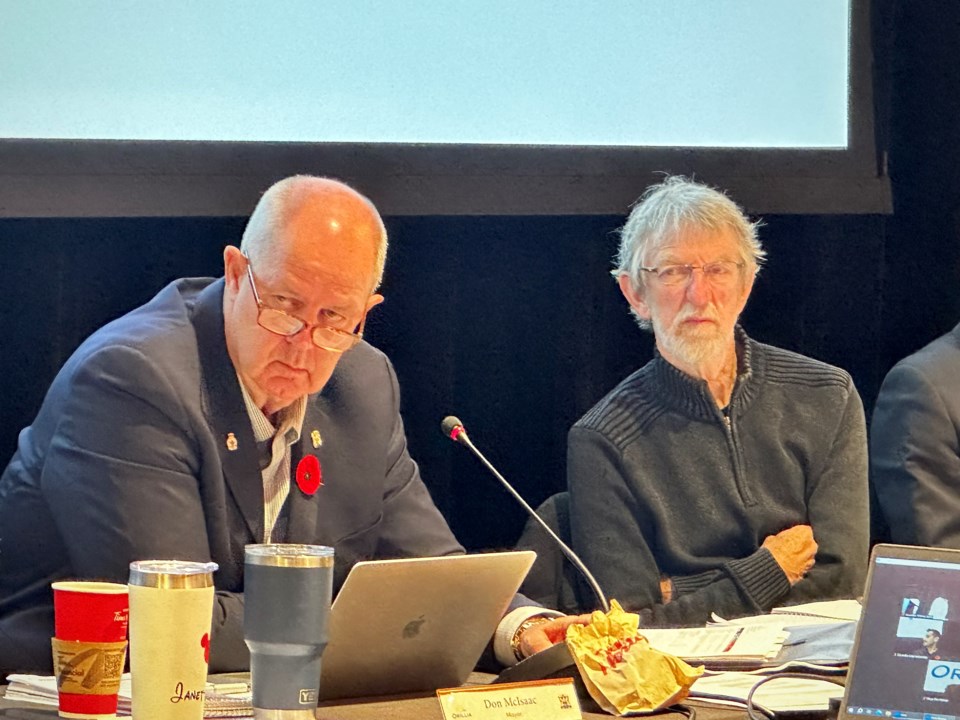Although Coun. Tim Lauer argued there are numerous issues with the city’s current ward system, city council shot down his bid to scrap it in favour of an at-large system earlier this week.
For the past 25 years, the city has been divided into four wards – with two city councillors apiece, each representing their wards at city hall – but Lauer sought to see that system replaced at Monday’s council meeting.
The long-time Ward 4 councillor’s motion requested a staff report on the logistics of re-establishing an at-large electoral system – where each member of council represents the entire city.
Given Orillia’s small geographic size, Lauer questioned the merit of the ward system.
“If you look at Orillia geographically, we're a very small city – 11 square miles. I don't know of a place in town that I can't get to in 10 minutes,” he said. “You reside in one area, work in another, play in another, shop in another. At-large may not make sense in some situations … but in Orillia, we are blessed with our size, and we should capitalize on this democratic opportunity.”
He also argued the ward system creates accountability issues as residents only vote for councillors in the wards they reside in, as well as a mayoral candidate.
“Currently, councillors are elected to make decisions on behalf of the entire city that are accountable to only a quarter of the electorate,” Lauer said. “The goal of any election should be to identify the nine best candidates, regardless of gender, race or residential address. Currently, a voter chooses only three members of council, a significant minority.”
The rest of council, however, was not keen to scrap the ward system.
Coun. Whitney Smith said she learned about issues with short-term rentals in Ward 1 because that’s where she primarily campaigned – an issue that could have been missed had she campaigned in the entire city. Coun. Janet-Lynne Durnford argued Orillia’s neighbourhoods do indeed have ward-centric issues.
“We see at this council table that the issues that are brought forward by our Ward 3 councillors are significantly different – they have to do with new housing, with traffic, with traffic calming – and the issues that we're bringing forward, for example, from Ward 4, are much more to do with the waterfront, the downtown, so there are very different issues in the different wards,” Durnford said.
“Having a ward system allows the candidates to focus on the issues in their ward.”
Coun. David Campbell argued running a full-city campaign could be an impediment for would-be councillors, due to the cost and time of organizing such an effort.
Campbell also argued an at-large system can result in multiple candidates from the same parts of the city getting elected to council, resulting in decisions “not always in the best interests of all Orillians,” and suggested candidates should have to live in their wards, as well.
“I feel that in order to hold a seat on a municipal council, you should at least have to live in that municipality. Further, I would suggest that a councillor in a ward system should live in the ward that they represent,” he said.
“Now, I realize that the requirements are set in the Election Act; I've also heard that the Association of Municipalities of Ontario are looking at recommending some changes to make that change," said Campbell.
“If that remains unchanged, I strongly recommend that electors look very closely at who they're electing, who they're considering and where they live.”
As someone who resides beyond city limits, Coun. Ralph Cipolla took exception to Campbell's idea.
"I've been in business 53 years, and I lived in Orillia for a long time and then bought a cottage outside the city ... but I still have my business in a few buildings in the city," Cipolla said. "I care about Orillia; I love Orillia, and that's why I ran, so your interpretation that you must live in Orillia in your ward is inappropriate."
Other members of council suggested the public should be more directly involved with any sort of council or electoral reform proceedings.
“I'm supportive of looking at anything, but my big principle is I think it should, if not be out of our hands, at the very least have a committee made up of public representatives that deliberate on this and make a recommendation to us,” said Coun. Jay Fallis.
